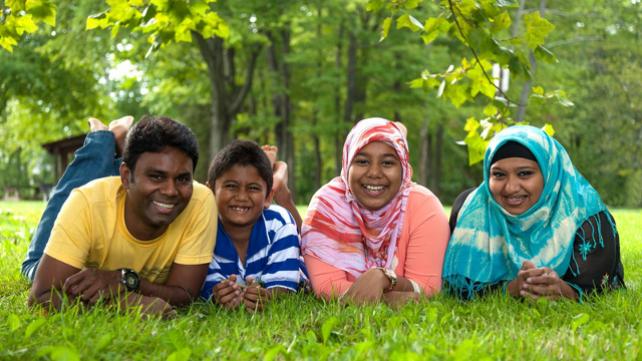
Shura, often translated as consultation in English, is a process every Muslim is encouraged to incorporate in his or her life for matters not just relating to Masjid or organizational meetings, but within circles of family and friends as well.
When it comes to Ramadan, consulting family and friends about the blessed month can and should go beyond generalities. Here are five specific issues to discuss, debate, and agree on that can help you maximize the benefits of this special time.
1. How can we eat Iftar or Suhoor together?
For families, if you don’t normally eat dinner together, Ramadan offers a unique opportunity to eat at least one meal together, at Iftar or Suhoor. This is something Prophet Muhammad, peace and blessings be upon him, highly recommended, saying, “Eat together and not separately, for the blessing is associated with the company" (Ibn Majah).
For friends, this can be planned at a different home on a rotating basis, making the meals simple, and making it a potluck so no one gets burdened with too much cooking.
2. How often will we attend Taraweeh and where?
As an extra form of worship reserved specifically for Ramadan, Taraweeh can be offered in the home. But in the Masjid or Islamic center with hundreds of other worshippers, the sense of spirituality and community is heightened. Plan to attend Taraweeh as a family or as a group of friends at least once a week. Don’t feel you have to choose the nearest locale if it does not suit your needs. If you prefer one Imam’s recitation better, the friendly atmosphere in one Masjid over another, or the kid-friendly amenities at another Islamic center, consider making the drive out.
3. What are at least two volunteer projects we can participate in as a group?
Some Muslim organizations have already planned volunteer opportunities for individuals and families in their communities, ranging from making bag lunches for a shelter, setting a day and time to make breakfast for the homeless, or arranging a clothing drive for those in need. If no such activities are planned in your locality, consult with family and friends and organize one on your own. With Ramadan being the month of heightened spirituality and generosity, it is an ideal time to take part in such an initiative.
4. How much Quran can we read together?
While everyone tends to set their own goals of how much Quran they can read, try setting a group minimum goal, whether it’s a page of Quran with translation a day, or even half a page. By setting a minimum and holding each other accountable, family and friends can encourage and push each other to reach higher with Quran reading this Ramadan.
5. Which Duas should we read in the last 10 nights of Ramadan
Ramadan’s last 10 nights are very special, as we seek Laylatul Qadr, the night that the Quran describes as “better than 1,000 months” (Quran 97:3). While many of our Duas are usually very personal, involving our own hopes, dreams, and goals, others can and should involve our family, friends, and community on the broadest level. Consult family and friends about what Duas to make this Ramadan, whether it’s for a family member or friend facing illness, a relative coping with job loss, or a group of people suffering great hardship. Shura for Duas will help you catch Duas you may have completely forgotten to include.




Comments
For families, if you don’t
For families, if you don’t normally eat dinner together, Ramadan offers a unique opportunity to eat at least one meal together, at Iftar or Suhoor.
Location
Add new comment